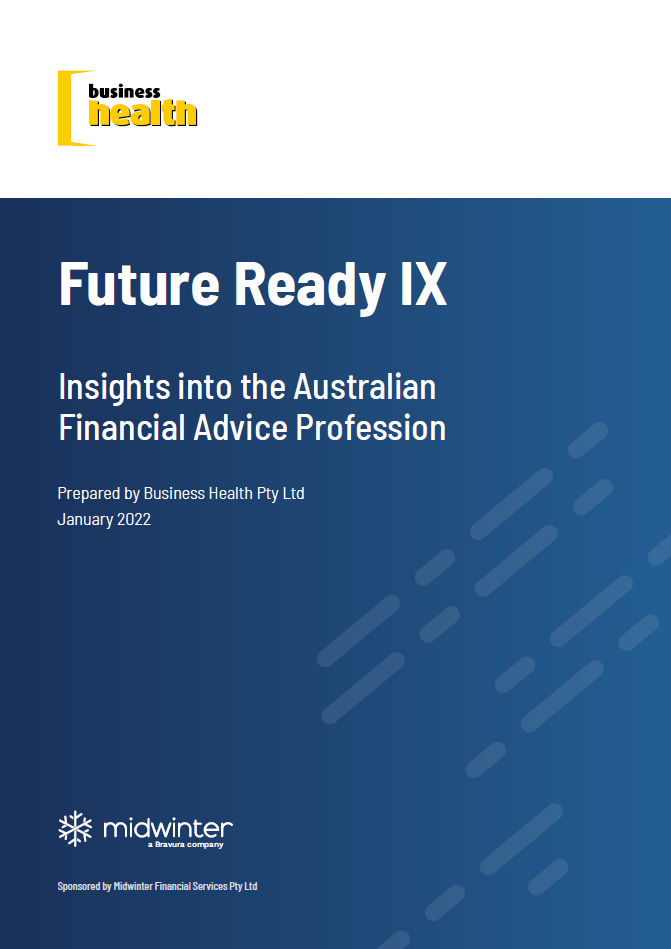More than half of the advice practice clients are now over 60 years of age and almost one in two has retired or is no longer working, meaning the advice required is changing markedly, a new report has found.
During a webinar to launch the Future Ready IX report, produced by Business Health in partnership with Midwinter Financial Services, Business Health’s Rod Bertino said the report found that 55 percent of financial adviser clients were now older than 60 years of age and 48 percent have retired or are no longer working.
He says this “dramatic demographic shift” is something advisers need to be aware of and prepared for.

He pointed to 70-to-75 year olds who no longer have a need for income protection, life insurance or advice on accumulating more savings, but they still have very real needs for advice.
Advice business need to understand the changing needs and to align their services to match those changing advice needs.
“This aging client base means more practices are offering services they weren’t three or four years ago such as aged care and estate planning,” Bertino said, also pointing to help with Centrelink or philanthropic advice.
Advisers are ideally placed to facilitate the discussion, he says, however only one in four advice practices are considering expanding the range of solutions they offer their clients.
Asked about trends in inter-generational advice, where clients paid their children or grandchildren’s life insurance, Bertino said there are definitely clients looking to do that and also pointed to clients helping to fund education for grandchildren. While they don’t have any statistics around it, these are examples of older clients having different advice needs.
This report is based on in-depth business and financial data obtained from more than 200 advice practices through the Business Health HealthCheck business assessment tool.
Average revenue steady over past two years
The report also found that financial advice practices have held average revenue steady at $1.2 million over the past two years “…despite escalating operational costs which have squeezed profitability.”
The research found that average profit declined almost 15 percent from 28.2 percent to 24 percent year-on-year as practices increased business investment and overhauled fee structures to adapt.
Midwinter Chief Commercial Officer Steve Davison said the result is a testament to the resilience of the financial planning sector, which also overcame the challenge of pandemic lockdowns.
Bertino said 74 percent of advice practices still expected to increase business revenue and 64 percent expected to increase profitability over the next 12 months.
“The good business owners have been willing to invest in what was needed to remain successful and sustainable. Their operational expenses are up given higher overall licensee costs, including professional indemnity insurance, while they’ve employed more staff to support their client-facing activities.”




